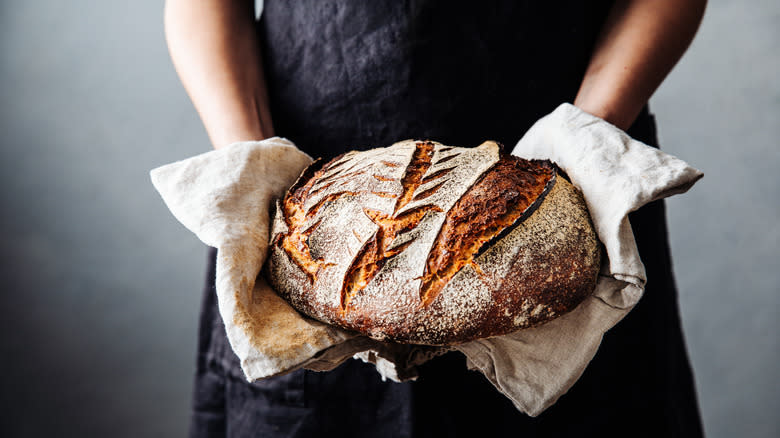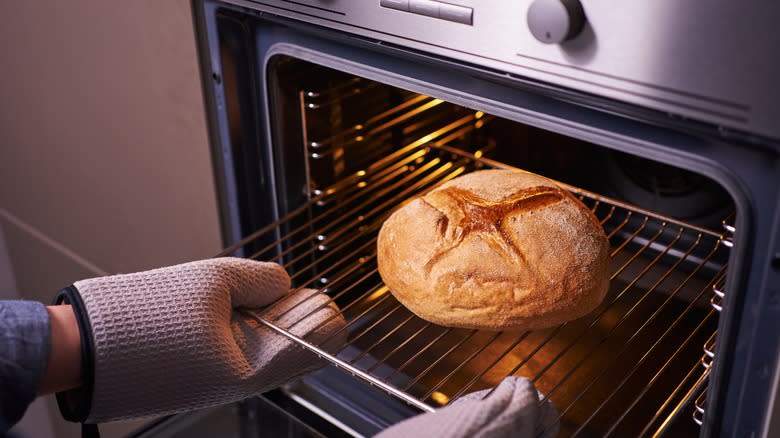Why Bread Turns Out Gummy And How To Avoid It In Your Next Bake

Nothing smells or tastes better than a loaf of freshly baked bread. Even better than enjoying the scent when it's wafting through your local bakery is when it's floating through your very own kitchen. Making bread at home can be a fun and rewarding activity, but many find it discouraging as the science of the process can result in a bit of trial and error. For example, if your homemade bread keeps turning out gummy, it may be a problem with your baking temperature.
It should come as no surprise that the outside of a loaf of bread cooks faster than the inside, seeing as the heat touches the exterior first before it is able to penetrate the interior. The more intense the heat in your oven, the more extreme the difference between these two cooking rates is. While a nice hot oven can produce a beautiful loaf with a crisp, golden crust, too hot of an oven will cause the crust to finish cooking long before the center of the bread. This will result in undercooked dough with a sticky, chewy texture rather than a fully risen crumb. Keeping a tighter control over the temperature of your oven is enough to prevent the issue from happening again in the future.
Read more: 11 Cleaning Tips For Keeping Your Oven Spotless
How To Prevent Gummy Dough

The best thing to do in order to ward off a doughy, undercooked mess in the center of your loaf is to simply get to know your oven. Each oven has its own quirks and can heat up with different levels of consistency and precision. Start by cooking your bread at the temperature prescribed in your preferred recipe, like the one mentioned in our no-knead rosemary bread recipe. Once finished, allow the bread to cool thoroughly and completely before cutting, as cutting too soon can also contribute to a gummy texture. Finally, slice and examine the texture of the bread. If you find the dough to be underdone, try your next loaf at a slightly lower temperature for a slightly longer period of time.
Eventually, you will work out the unique quirks of your oven and will be left with the perfect loaf after every single attempt. During this experimentation window, you can try to save gummy loaves of bread by popping them back in the oven for a few minutes to cook some more. If the dough is too far gone and this does not work, however, it is best to simply toss out the bread to prevent illness or other issues that come with undercooked food.
Read the original article on Tasting Table.


